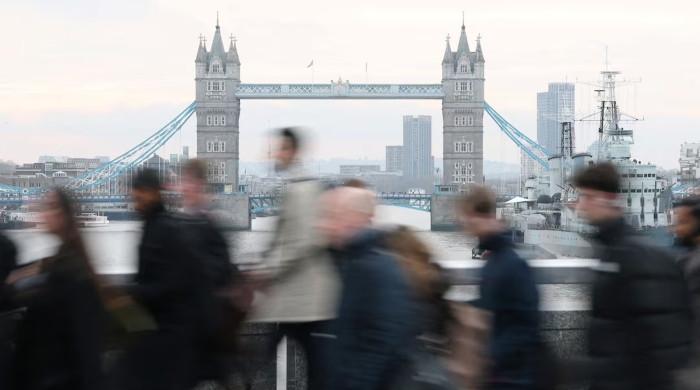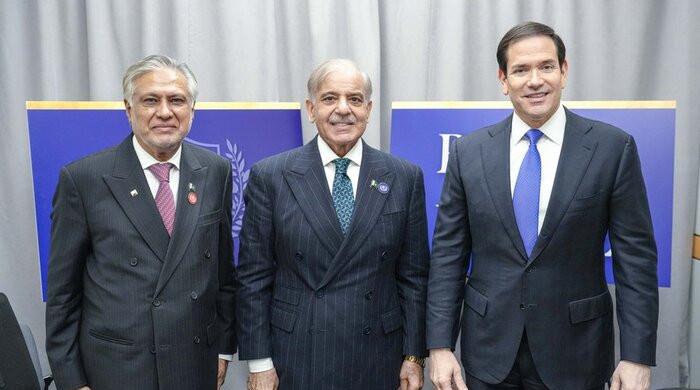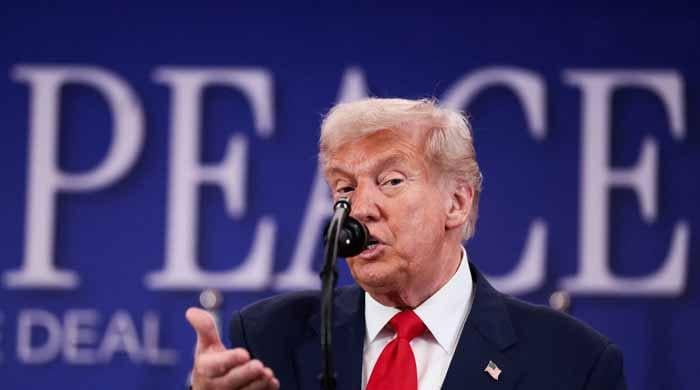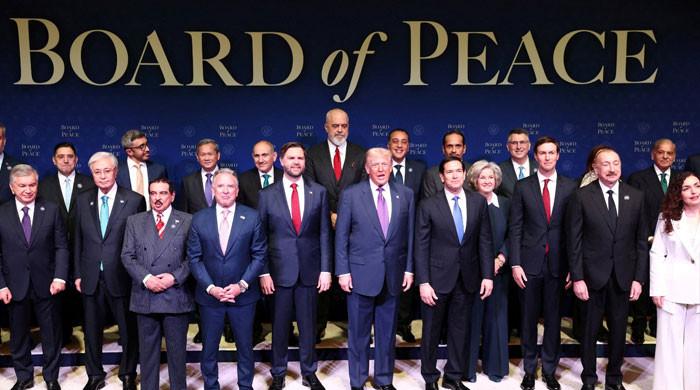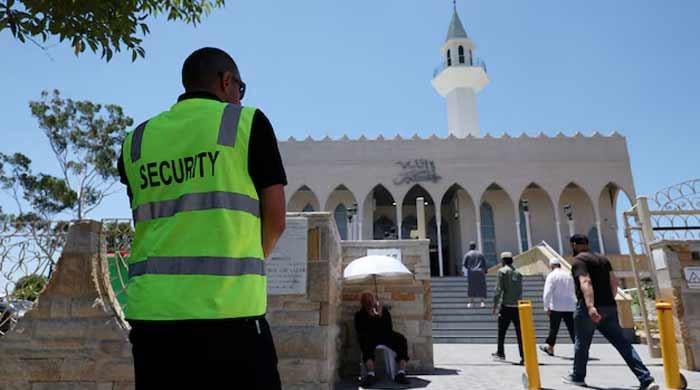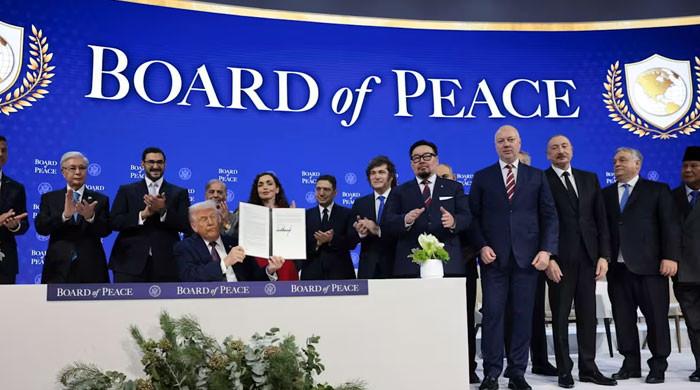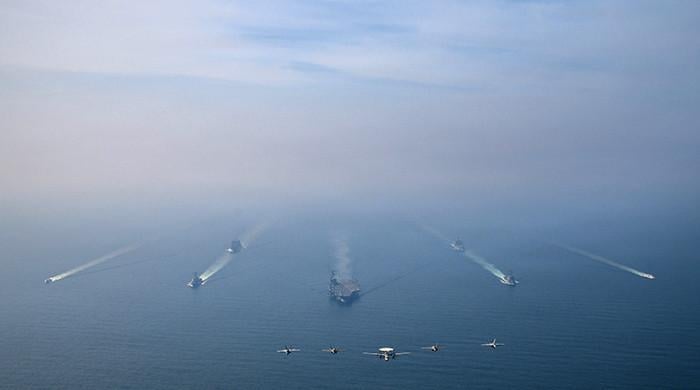Daesh, Assad forces battle for control of Damascus water supply
Geo News correspondent Ali Imran reports from Syria, the first time a Pakistani news channel has sent its reporter to the war-torn country
January 02, 2017
DAMASCUS: Syrian government forces advanced Monday as they battle to capture a key rebel-held region to take control of the capital's water supply, threatening a fragile nationwide truce.
Geo News, maintaining its tradition of bringing its viewers and readers first-hand knowledge of events occurring around the globe, has reached war-torn Syria.
After having reported events from Iraq, Lebanon, Afghanistan, Gaza and other battlefronts, Geo News team has now been in Damascus, Syria.
From there the team left for Barada, where the war is raging between Daesh and forces allied with Bashar al-Assad's government.
The clashes are aimed at gaining control of water reservoirs in Barada, which make up for 70 per cent supply to Damascus.
Severe clashes are ongoing in Barada, while there is a serious water shortage in Damascus causing difficulties to citizens.
The United Nations says at least four million people in Damascus have been without water since December 22.
Over 400,000 have already lost their lives due to the nearly five-year old war in Syria. Millions have been forced to take refuge in neighbouring countries including Turkey and Jordan.
The Assad government claims that the rebels have contaminated the water with hazardous chemicals and diesel, due to which the supply has been suspended.
The rebels say government forces have carried out intense shelling, resulting in the collapse of the water supply system in the Syrian capital.

A rebel fighter carries his weapon up a staircase on the forth day of the truce, on al-Rayhan village front near the rebel-held besieged city of Douma, in the eastern Damascus suburb of Ghouta —Reuters Photo.
Ceasefire under threat
AFP adds: The Assad army’s advance in the key rebel region of Barada valley is threatening a fragile nationwide four-day-old truce, brokered by regime ally Russia and Turkey, which backs the opposition.
Syrian Observatory for Human Rights says around 1,000 civilians – all of them women and children – fled the fighting in Wadi Barada over the weekend, moving to other parts of the province.
Wadi Barada has been surrounded by government forces since mid-2015, but the siege was tightened in late December as the army piled on pressure seeking to secure a "reconciliation" deal.
It has won several of these deals in opposition areas around the capital, offering safe passage to surrendering rebels in return for retaking territory. The opposition criticises them as a "starve or surrender" tactic.
The ceasefire deal, and the plan for new talks, received the unanimous backing of the UN Security Council on Saturday, despite offering a competing track to UN-sponsored negotiations.
Turkey and Russia are organising the talks in Astana along with regime ally Iran, and say they are intended to supplement, not replace, UN-backed negotiations scheduled to resume in February.
Despite backing opposite sides in Syria's conflict, Ankara and Moscow have worked closely in recent months on the war, brokering a deal to evacuate civilians and surrendering rebels from Aleppo last month before the regime recaptured the northern city in full.

Over 400,000 have already lost their lives due to the nearly five-year old war in Syria. Millions have been forced to take refuge in neighbouring countries including Turkey and Jordan. —File Photo.





